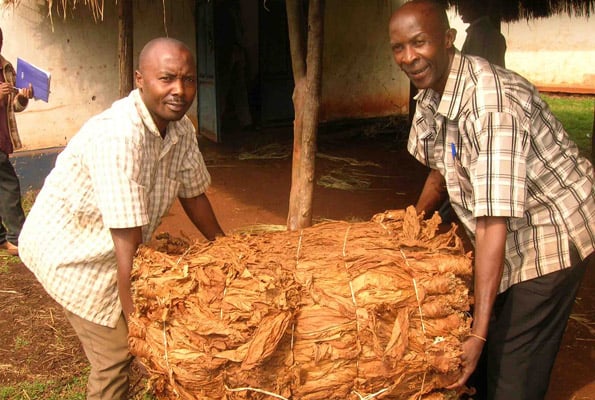Create alternatives for communities enslaved by tobacco- CSOs to govt

Farmers lift a bale of tobacco at the buying centre. PHOTOS BY JOSEPH MITI
What you need to know:
- In 2015 Uganda passed one of the world’s strongest tobacco control laws that banned public smoking.
Health rights activists under the Uganda National Health Consumers' Organization (UNHCO) have asked government to create viable alternative income generating ventures for communities enslaved by tobacco farming and production.
“Farmers who plant, cultivate and harvest tobacco are at risk of suffering from a form of nicotine poisoning known as green tobacco sickness which often causes nausea and vomiting that can lead to hospitalization”, they said.
According to UNHCO head legal, Moses Talibita, finding an alternative will help the community to abandon growing the crop which poses life threatening risks to those who are still depending on tobacco to earn income.
Talibita remarked in a Tuesday telephone interview, a day before Uganda joins the globe to mark the World No Tobacco Day to be celebrated on May 31 under the theme “Grow food, not tobacco.”
In Uganda the most producing areas of tobacco include Kiryandongo,Arua, Koboko and Kanungu among others.
“They must increase funding to support alternatives live hoods for communities that have been largely enslaved by tobacco growing. Even the Parish Development Model (PDM) must extend funding to such vulnerable communities and the tobacco growing communities must be top on the list so that they can engage in growing other crops which generate income,” he told Monitor.
Talibita emphasized that increasing funding towards anti-tobacco initiatives is also crucial in the move to limit tobacco growing in Uganda.
In 2015 Uganda passed one of the world’s strongest tobacco control laws that banned public smoking.
The law also banned tobacco advertising while it also barred the sale of cigarettes in public places such as healthcare facilities, cinemas, police stations or within 50 meters of educational institutions or places where children are cared for among others.
The anti-tobacco campaign initiative encourages government to end tobacco growing and also support farmers to switch to more sustainable crops that improve food security and nutrition.




